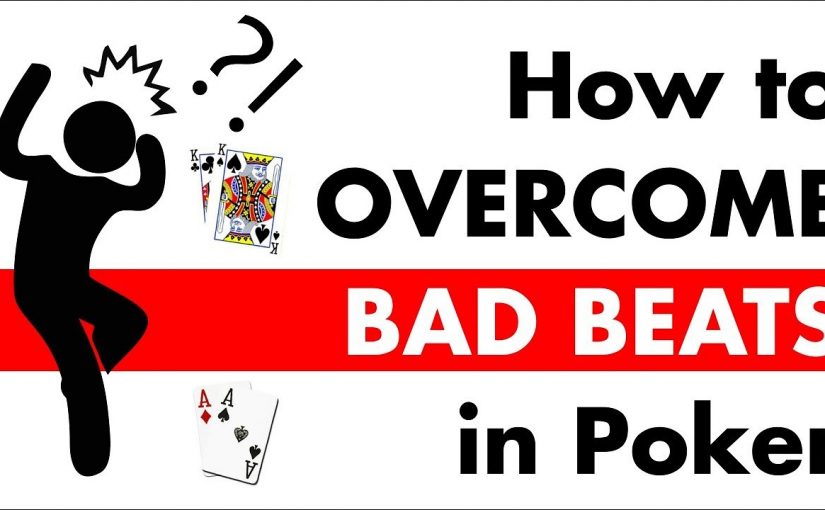One of the things that make poker such an exciting game is the possibility of getting “bad beats” which is simply too generated. Too much “bad luck” can occur at any time in the game of poker, which can make the game less interesting and the player to switch to another table or just plain leave the game for a while.
Bad beats can occur either because the player is better than his opponent, or because the player is weaker than his opponent. But in almost all cases of all kinds of poker games, the reason for the win is the same either way, whether the player is stronger or weaker than his opponent. In short, in poker the draw of the hand is the reason for the win.
Playing against a better player who makes less mistakes than you can is one way to get the money in the pot. But if you play against a weaker player, then you know that in the long run, the better player will always win. In poker this is the way to get rich faster.
Although it is possible in some situations to get a call on the river as the result of a poor poker judgment, usually this rarely happens. The drawback of the call is that you won’t be in position to make a better judgment anyhow.
The main benefit of the call is that you’ll be able to make a cheap flop in the position you are playing in Bocoran Slot Tergacor Rtp Live. Using the call efficiently means that you’ll be dominating any hand that your opponents play against you. The next time your opponent calls, be sure that you re-raise in two or three bets. Do not call in a situation where you think you don’t hold the best hand. Any poker professional will tell you that you shouldn’t go to a showdown without a very strong hand. If you don’t, you’ll props of getting outdrawn. So, in this situation, I’d call. I’d raise if I had a very strong hand, and I’d fold if I had a dud hand.
But, I’d add this bit of information here, if you are in a situation where a lot of players call around the flop. The flop drops three clubs. Everyone checks around to you. If you check, and you’re called, you need to make a continuation bet that is generally in line with the pot size. If you are called, you should drop your hand. Overall, though, in this situation, you’ll win a bit because statistically you are bound to win opposition. You won’t win them all, but you should win enough where you are profitable in the long run.
And, the same ought to go for evaluating any given heads-up poker matchup. Although, mathematics is not my strong suit, I think that I can at least make some rough estimates.
When you are entering the last betting rounds, you are apt to gain some percentage over the opponent playing heads up, roughly 3 to 2. (I’m leaving out the times when the winner is determined pre-flop and the loser comes out cool.) This means that you can expect around half of the total pot money to be returned to you,gressive of course.
And, the situation only becomes interesting if you are playing in a ring game. Since you play five community cards to your hand, and there are roughly N400 people who will be playing for it, the expected return scratchers-wise would be around $160 while the expected return rough-xs will be around $85. Since poker players will be playing for a number of years, the historical advantage or disadvantage of the pockets-versus-zones will shift the calculations of probability.
Famous people and great mathematicians have been working on ways to increase the odds of getting hold of the fabulous cards. (This doesn’t necessarily mean they’ve accomplished this goal, or that other individuals have.
